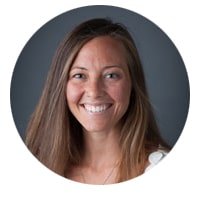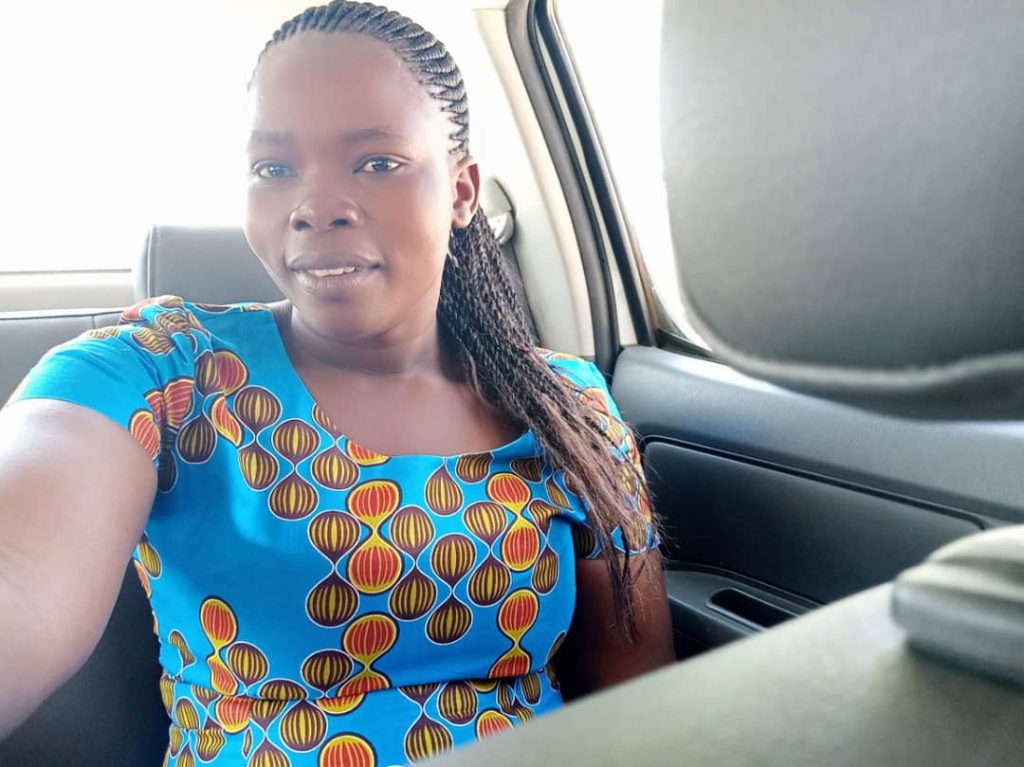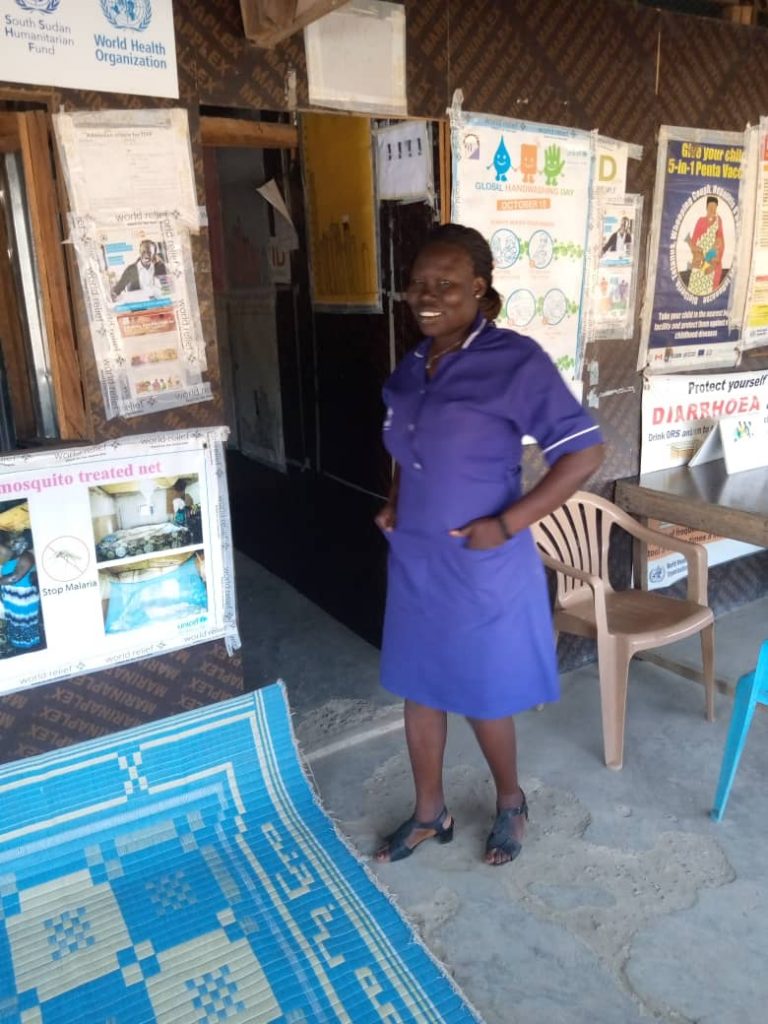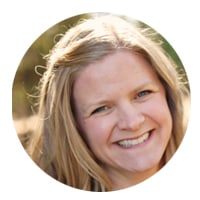Interviews
She Dreams Courageously: One Woman Who is Making it Happen
“I believe that while you might not be able to change the whole world, you can change your world.”
— Leisha Pickering
Leisha Pickering dreams courageously. While going about her life as usual on her farm in Mississippi, a man stopped by asking for work one day. This inspired an idea. She said yes to that idea, started pursuing it in her kitchen and today she is changing the lives of people in her community, the U.S. and around the world.
As Founder and CEO of Musee and Pretty Inside, Leisha utilizes her brands to create opportunities for those who may not otherwise be given one, to support those in need and to empower women. World Relief is proud to be a partner in this work.
World Relief President, Scott Arbeiter, sat down with Leisha to learn about her story and her desire to use her company to impact the women who purchase their products while also affecting change for refugee women and children around the world.
Download the transcript of the interview here →
Leisha dreams courageously and inspires others to lean into the change that we can create in the world. Creating change doesn’t require much, only that you begin — with your idea, what you have and where you are. Will you join us in building a better world by giving today?
Visit Pretty Inside to make a purchase and help support women rebuilding their lives.

Dana North serves as the Marketing Manager at World Relief. With a background in graphic design and advertising and experiences in community development and transformation, Dana seeks to use the power of words and action to help create a better world. Dana is especially passionate about seeking justice for women and girls around the world.
Everything You Need to Know About Unaccompanied Minors at the Border, Part 2
A Conversation with Matthew Soerens and Jenny Yang
Recently we’ve seen reports of another “crisis” at the U.S.-Mexico border, particularly related to children, or ‘unaccompanied minors.’
We continue to explore and understand what’s actually happening, what should be happening?, and what can followers of Jesus who care about vulnerable children do?
We’re continuing the conversation World Relief’s President, Scott Arbeiter, started with Jenny Yang and Matthew Soerens, World Relief’s in-house immigration policy experts and co-authors of Welcoming the Stranger: Justice, Compassion and Truth in the Immigration Debate to help us understand what’s currently happening at the border. (If you missed part 1, listen or read to it here.)
Quick Facts:
Immigration policy can be confusing and hard to keep track if you aren’t familiar with the language. Below are a few key terms to keep in mind as you listen and/or read.
TVPRA: The Trafficking Victims Protection Reauthorization Act. A 2008 law that, among many other elements, governs how unaccompanied children identified at the border are to be treated.
Title 42: A public health law that both the Trump and Biden administrations have cited as a legal justification to turn away asylum seekers because of the COVID-19 pandemic.
Migrant Protection Protocols: A Trump administration policy that required most asylum seekers who arrived at the U.S.-Mexico border to “remain in Mexico” to await their court hearings, rather than being allowed to wait safely in the U.S. for their court proceedings.

Scott Arbeiter is a former pastor of Elmbrook Church in Brookfield, Wisconsin, and the president of World Relief, which is a subsidiary of the National Association of Evangelicals.
Everything You Need to Know About Unaccompanied Minors at the Border Part 1
A Conversation with Matthew Soerens and Jenny Yang
This week, we’re seeing news reports of another “crisis” at the U.S.-Mexico border, particularly related to children, or ‘unaccompanied minors.’
What’s actually happening? What should be happening? And what can followers of Jesus who care about vulnerable children do?
Here, World Relief’s President, Scott Arbeiter, sits down with Jenny Yang and Matthew Soerens, World Relief’s in-house immigration policy experts and co-authors of Welcoming the Stranger: Justice, Compassion and Truth in the Immigration Debate to help us understand what’s currently happening at the border.
Quick Facts:
Immigration policy can be confusing and hard to keep track if you aren’t familiar with the language. Below are a few key terms to keep in mind as you listen and/or read.
TVPRA: The Trafficking Victims Protection Reauthorization Act. A 2008 law that, among many other elements, governs how unaccompanied children identified at the border are to be treated.
Title 42: A public health law that both the Trump and Biden administrations have cited as a legal justification to turn away asylum seekers because of the COVID-19 pandemic.
Migrant Protection Protocols: A Trump administration policy that required most asylum seekers who arrived at the U.S.-Mexico border to “remain in Mexico” to await their court hearings, rather than being allowed to wait safely in the U.S. for their court proceedings.

Scott Arbeiter is a former pastor of Elmbrook Church in Brookfield, Wisconsin, and the president of World Relief, which is a subsidiary of the National Association of Evangelicals.
Get to Know Our Staff: South Sudan, Women Who Are Making It Happen
In the flood basin of the Nile River in South Sudan lies Unity State — a region of overflowing waterways, more and more due to the impact of climate change. Traditionally, most people who live here are from one of two ethnic groups, the Nuer or Dinka people, and live as pastoralists — they farm, fish and raise herds of cattle.
And yet, post-independence grievances, spurred by decades of northern Sudan-dominated rule that pit ethnic groups against each other, has resulted in violent conflict in Unity State. This conflict has inflicted terrible humanitarian atrocities and internally displaced at least 2 million people, further weakening an already fragile ‘world’s youngest nation’.
It is in this setting Anek Sendrella and Muraa Rose — World Relief staff — live and work, bringing lasting change to women and girls amidst the challenges of violence, displacement and poverty. Today, as part of our Get to Know Our Staff series, Anek and Rose share about how they’re challenging the issues their communities face and fighting for lasting change. These women are making it happen, lean in.

Anek Sendrella Lupu
What is your role at World Relief?
Anek: I am an Education Project Officer and provide mentorship in primary and secondary schools.
Can you share a little about your work — what you enjoy and what you find challenging?
Anek: In both primary and secondary schools, I encourage girls to learn and stay in school while also reaching out to vulnerable girls and women in the community to help them find a way to receive education.
Not only is this work difficult due to conflict, which prohibits schools from meeting, but also because of harmful social and gender norms that devalue education for girls, keeping them home to do housework and other duties, while their male counterparts study and go to school. Challenging these norms is difficult, but I want girls to know their value and change norms around education.
How do you see your work helping to improve the lives of women in your community?
Anek: Since we began our work here over three years ago, women in the community have worked alongside schools to build holistic and sustainable learning environments. We have built school gardens with varieties of vegetable crops like okra and sukuma (collard greens) where children can learn about farming and the crops themselves. Those vegetables then are sold, and the money helps pay teachers, which grows the teaching staff.
When looking at education for girls, we must first look at the harmful social and gender norms — child marriage, early pregnancies, forced domestic work and violence — that force girls to drop out of school or never enroll in the first place. Mentoring and focus groups have been crucial because when this is talked about, we begin to challenge these norms and change can happen.
What changes in the future do you hope to see in your community?
Anek: When a girl has a mentor, they have a person to share their hopes and fears with. This can help give her a sense of direction, to help give focus toward that direction and possible steps she can take to get there. Not only does this help in her career path, but other aspects of her future as well. When a girl has someone who believes in her and encourages her to achieve their goals, it can boost their confidence immensely.
If you have a daughter, what are your biggest dreams for her?
Anek: My biggest dreams for my daughter are in these phrases:
“Your beliefs become your thoughts. Your thoughts become your words. Your words become your actions. Your actions become your habits. Your habits become your values. Your values become your destiny!”
Now, just for fun! When you are not working, what are some activities you enjoy?
Anek: I spend time with my family, and enjoy visiting my grandparents and eating together. I also enjoy learning new skills by attending courses at a local institute.
What is your favorite Bible verse?
Anek: Deuteronomy 31:6 — “Be strong and courageous. Do not be afraid or terrified because of them, for the Lord your God goes with you; he will never leave you nor forsake you.”

Muraa Rose Adauto
What is your role at World Relief?
Rose: I am a Reproductive Health Officer.
Can you share a little about your work — what you enjoy and what you find challenging?
Rose: In the maternity ward at our clinic in the Bentui Protection of Civilians camp, I conduct daily antenatal check-ups and ensure all pregnant women receive routine care. This work ensures that when the time comes for women to give birth, they can have a safe delivery for themselves and their babies.
I also lead focus groups with adolescents around health. The biggest challenge I face caring for the health of women and babies is the lack of resources and modern equipment available. There can be complications at any stage of pregnancy, labor and delivery, and without proper equipment, we are limited to what we can do. Even something as easy to do as an ultrasound scan can help us detect obstetric complications early and keep both mother and baby safe.
How do you see your work helping to improve the lives of women in your community?
Rose: My work at the clinic and through focus groups saves the lives of many in the community. By making services available and bringing awareness of these services to the community, women are more likely to understand their risks, take steps to prevent them and maintain their health and the health of their children.
What changes in the future do you hope to see in your community?
Rose: I hope to see women in the community pursue their prenatal, antenatal and postnatal health. With more women visiting a clinic for routine checks as well as for delivering their babies, there will be fewer complications than when all of this is done at home. It will also be important for people in the community to know and learn about family planning to reduce the rate of maternal mortality and morbidity.
If you have a daughter, what are your biggest dreams for her?
Rose: I dream she will go to school, study hard and become a health care worker.
Now, just for fun! When you are not working, what are some activities you enjoy?
Rose: I love storytelling and singing, especially singing at my church.
What is your favorite Bible verse?
Rose: Philippians 4:4 — “Rejoice in the Lord always. I will say it again: Rejoice!”
Anek and Rose’s leadership is changing beliefs, shifting systems, combating injustice and fighting for lasting change. They are challenging to change gender and societal norms to create a better world for women and girls. Will you join them?

Dana North serves as the Marketing Manager at World Relief. With a background in graphic design and advertising and experiences in community development and transformation, Dana seeks to use the power of words and action to help create a better world. Dana is especially passionate about seeking justice for women and girls around the world.
How Marie Holst is Making Change
As we approach the year-end season, we are giving thanks for everyone who partners with us at World Relief — people like Marie Holst, a member of our Changemakers community.
Marie has been partnering with World Relief for 36 years. Today, she shares why she loves being a member of the World Relief community and why she believes all of us are made for change.
How long have you been partnering with World Relief, and what first prompted you to make a gift?
I have been giving monthly to World Relief since 1984, which if my math skills serve me right, is 36 years. I had graduated from high school, found employment and began making a regular income. When I went off to college, I was looking for an organization worthy of donating a percentage of my income. I was impressed with World Relief because they spread God’s message of hope and love to the world through tangible life-giving means. World Relief does not just come in and preach to people. They clothe, feed and train them to have sustainable lives. Through that love, they can share the good news of Jesus.
By giving to World Relief, I felt that I was supporting the Great Commission when Jesus told his disciples to go and witness to people locally, regionally and to the ends of the earth (Acts 1:8). I am not equipped to go as a missionary to the ends of the earth, but I can support those who do.
When you think about the impact your gifts have had, what are you most proud of?
To be honest, I’m most proud of how my gifts have had an impact on my own family. When I married my husband, Dave, I shared with him my views on giving. God loves a cheerful giver and blesses those who are faithful to Him in their charity (2 Corinthians 9:7). Now, with two children, we are able to be role models for them. Opening up our grip on finances and giving to God from the top of our income has an amazing way of freeing us from the unpleasantness of greed and worry. Our family is truly blessed in our attitudes regarding money.
Having said that, I am truly appreciative of World Relief and its efforts to change the world. I would not have continued giving to them for 36 years if they were not having a tangible impact all around the world today.
Why should someone consider partnering with World Relief today?
The world today is in such need. With natural disasters, poverty, famine, disease and war, the world needs relief and the good news of Jesus more than ever. World Relief takes a restorative approach to these issues, providing emergency resources when needed, but also taking long-term action to assist people to restore their lives. If you give a man a fish, he will be fed for a day. If you teach a man to fish, he will be fed for a lifetime. World Relief understands this and is in the business of teaching people how to build sustainable lives and supporting them with the resources they need to do it.
How have you seen faith or the Church change hearts in your community?
I can’t deny the most obvious is the Church’s response to the COVID-19 crisis. Across the board, I have seen fellow Christians stepping up to offer the hope that Jesus brings. Churches of all denominations have changed swiftly to be able to minister to people despite quarantines and social distancing. Many churches have implemented online services that will continue to reach people at home. I see God moving in this crisis to change His people, bring flexibility and expand the circle of people that He can reach.
There are a lot of people stepping up to support local organizations, such as food pantries. People are also jumping in and helping those in need, who may have lost their jobs due to COVID. I am amazed at how God’s people are stepping up to meet needs in these crazy times.
What does the phrase “we are made for change” mean to you?
I hear there are people who are invigorated by change. I personally prefer stability, things that are known and comfortable. However, I cannot stand injustice, poverty, hunger, hurting or lostness. These things break God’s heart, and so they break mine. If we are not the hands and feet of Christ on this earth, then who will be? The Church is the body of Christ. We are made to change the world for the better.
Is there anything else you’d like to share with our readers?
I just want you to know that World Relief did not prompt me or pay me to write any of this. I’m just an average person with an average life in the American Midwest and sharing my heart with you.
God is good. If He is calling you, take a step of faith. He will count your faith as righteousness (Romans 4:3, 5&9, Galatians 3:6 , James 2:22-24). Trust Him.
Join Marie and thousands of others like her in creating change that lasts by giving to World Relief. Your gift today ensures a better tomorrow for millions of people in the U.S. and across the globe.

Karyn Bryant has worked with donors and philanthropists to put love into action for causes they feel passionate about. She joined World Relief’s strategic partnership team in January 2020. When not working, you might find her cooking, floating on a river or spending time with her husband and two young children where they reside just outside Sacramento, California.






